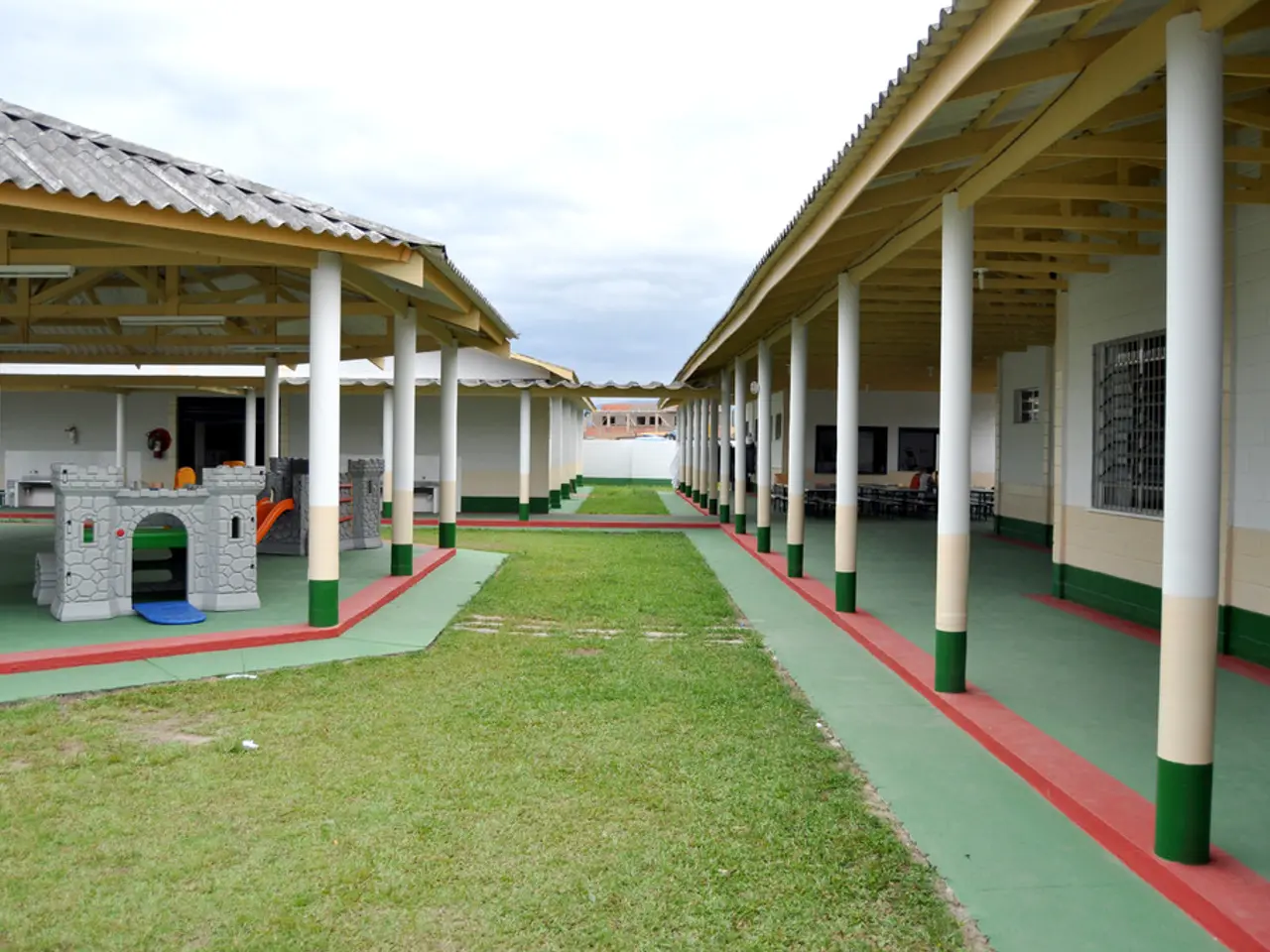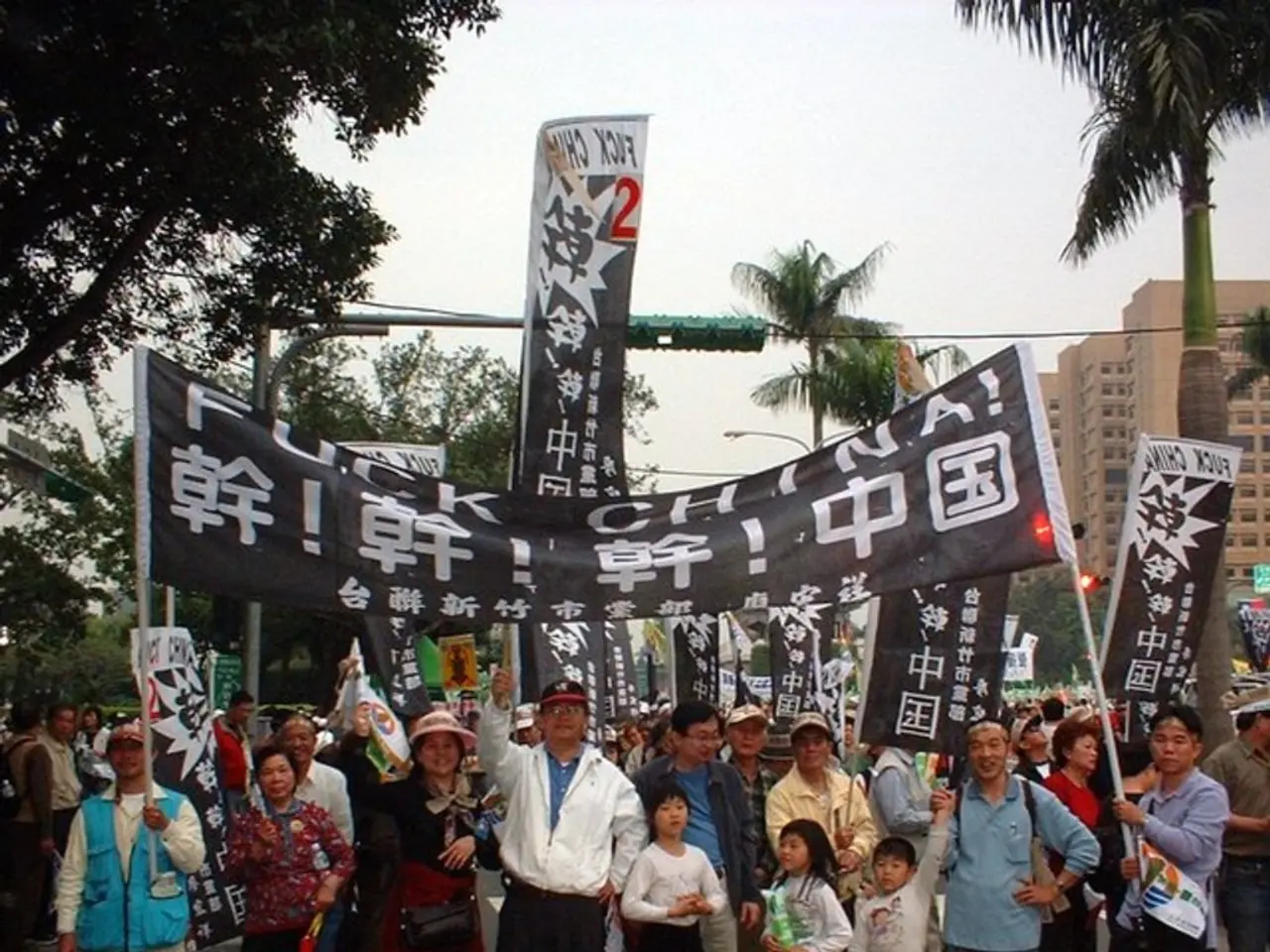Family of Yesidi facing forced removal at any expense
In the heart of Germany, the case of a Yazidi family from Brandenburg's Lychen has stirred controversy and sparked debate. The family, who had been living in Germany for several years, were deported to Baghdad, Iraq, despite a court order lifting the deportation.
The deportation took place just hours before an appeals court granted an urgent appeal against their deportation. The family's appeal raised doubts about the legality of the Federal Office for Migration and Refugees' (BAMF) rejection of their asylum application.
Brandenburg's Interior Minister, René Wilke, has since expressed intentions to facilitate the family's return to Germany, emphasizing the need for coordination between state and federal authorities and adherence to the court's decision.
The Yazidis had fled to the northern Iraqi Sinjar mountains in 2014 to escape genocide by the Islamic State. With the current decision, the return of the family is no longer an option.
This controversial case has led to criticism from opposition parties and human rights advocates, amid concerns about the risks Yazidis face in Iraq, especially in the Sinjar region, which remains unstable and where many Yazidis suffering from ISIS atrocities have sought refuge.
Germany's current regulations allow the deportation of rejected asylum seekers, including Yazidi refugees, even if they have integrated into German society through jobs or language skills. Deportations can be executed without the individual's consent if they are not considered to face specific threats in their home countries, with internal relocation within the country of origin also taken into account before granting asylum.
The Brandenburg Refugee Council is concerned that René Wilke's focus on automatisms instead of legal procedures when it comes to asylum will lead to more cases like that of the Lychen family. The Council stated that the application was still pending while the plane was on the German runway, indicating potential issues with the speed and fairness of the asylum process.
In a bid to address these concerns, the Brandenburg government plans to open a deportation detention center in 2028. However, the search for a location for the detention center is expected to be completed in 2026, with construction beginning in 2027.
It is important to note that the German Bundestag has recognized the ISIS massacre of Yazidis as genocide, which adds weight to calls for sensitive handling of Yazidi asylum cases. The case of the Lychen family serves as a reminder of the challenges and calls for legal and humanitarian reconsideration in dealing with asylum seekers in Germany.
References: 1. [Source 1] 2. [Source 2] 3. [Source 3] 4. [Source 4]
- The controversial Yazidi family deportation case in Germany, currently under scrutiny, has highlighted the need for policy-and-legislation reforms in handling asylum seekers, prompting concerns from opposition parties, human rights advocates, and the Brandenburg Refugee Council.
- With the brand new deportation detention center planned to open in 2028, politics surrounding German asylum legislation and its implementation with regard to Yazidi refugees remain a topic of general-news debate, especially in light of the legal complexities and humanitarian implications exposed by the Lychen family case.







